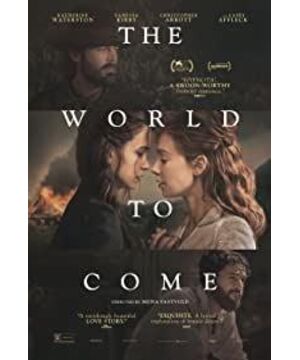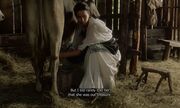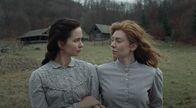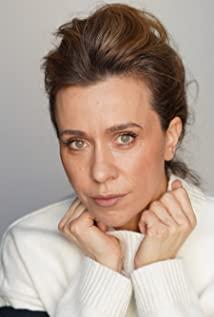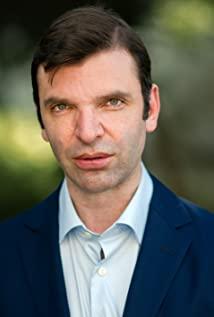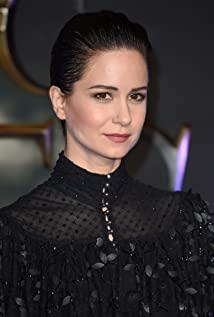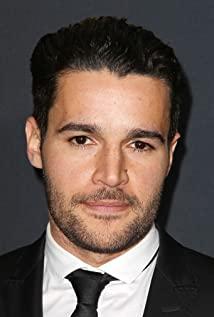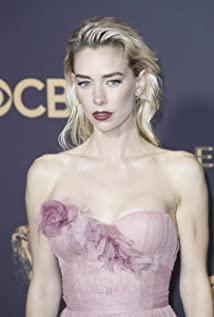On January 1, 1856, Abigail wrote in his diary: "While washing the potatoes, the water froze as soon as it touched the surface of the potatoes. With no pride to speak of, and with little hope left, we began A new year." The story of "Opening the Heart World" unfolds in such a gloomy and gloomy gray and cold tone.
"Open Heart World" directed by Norwegian director Mona Fastold is adapted from the short story of the same name by American writer Jim Shepard, telling the story of upstate New York in the 1850s, peasant woman Abigail and neighbor wife Tully A story of love between them. During the adaptation process, the film retains the delicate literary quality of the original work to a great extent, using the protagonist Abigail's diary as a clue to string the changes of the seasons in the mountains and forests, using ink and tears to record a secret and passionate episode. Same-sex love.
The title of "The World to Come" is quite religious. After the death of her daughter from diphtheria, a grieving Abigail and her reticent husband Dale have grown increasingly estranged. She no longer goes to church, and she no longer believes in the promised world behind her. She can only bury herself in the arduous work, pour all her thoughts and emotions into the pen, and hide it in a diary.
The arrival of new neighbors, Finney and Tully, upsets the indifferent and delicate balance of the Abigail family. The red-haired Tully adds the first touch of warmth to the picture, and Abigail's hidden talent and ego are nowhere to be seen in front of the alert and vivid Tully.
The beginning of every love story needs a reasonable opportunity, and the exchange of eyes between Abigail and Tully when they first met has sparked an unreasonable and reasonable flame. Faced with Tully's first visit, Abigail is polite and thoughtful, but the close-up camera reveals her gaze, lingering on Tully's cuff and face in a series of undisguised close-ups. "Her skin was a touch of rose and violet," Abigail wrote down in her diary that day, a secret observation we completed in sync with her.
From mid-winter to mid-summer, the metaphor of the changing seasons runs through the film, beautiful and cruel. As the days grew longer, Tully's brief afternoon visit was extended into a reluctant stay, and the chatter about her husband was gradually replaced by a poetic exchange of mind and heart. The common experience of being a woman connects the two women who experience joy for the first time. The proof of their mutual understanding transitions from language to body, and finally turns the ambiguity of finger touch into a natural kiss.
Probably all the kisses of love are touching, there are rich levels of temptation, but also the joy and relief of being sure that one is loved. The kiss scene in "Open the Heart World" deals with the aftermath of emotional resonance especially delicately. After the kiss, Tully lost her way when she went out, and Abigail took a stunned tear and turned the The body that had been curled up for a long time stretched out.
The fullness of the relationship between the two characters is largely due to the two leading actors' performances that fit the roles and are tacit and natural. Vanessa Kirby's Tully has an accurate sense of balance, with a brutal sobriety behind her sincerity and bravery; Kathryn Waterston, who plays Abigail, is like the whole film. Anchor, with a quiet voice, slowly pulled the audience into the stream full of tenderness and sadness.
The excellent performances of the two actors, combined with the soft photography of the 16mm film camera and the strong wind music soundtrack, together describe the love between Abigail and Tully as a classical oil painting with gentle brushstrokes but hidden turbulence. Although the space of the scene frame that framed the two is narrow and crowded, the hearts that were once bound to a square inch have entered a vast new world in "surprise and joy".
Unfortunately, they are not the only two in this world. Although Dale, played by Casey Affleck, often forces the background music to stop when he appears, he is not a face-lifting villain. He is not good at expressing his feelings and has a powerless kindness. In contrast, Finney, played by Christopher Abbott, is slightly functional, and at the same time a hypocritical believer and a spokesman for a violent patriarchy, he takes his wife for granted as a property at his discretion. This menacingly dangerous figure, like the grim dark clouds and blizzard in the background, foreshadows the inevitable tragic end of the story.
Compared with the previous works of the same type, the most prominent feature of "Open Heart World" is the diary-style narrative inherited from the original work. There are obvious risks in this approach. On the one hand, the large amount of narration quoted from the novel overwhelms the emotional expression of the image itself. The perspective also caused a sudden break in the film's narrative perspective.
But despite this, the diary style is still a necessary form that "Opening the Heart World" has to adopt, supporting a profound thematic expression that touches the fate of women. As Abigail said, "ink is like fire", in recording and writing, the existence of women, their struggles, emotions and desires can be seen and preserved.
Various forms of documentation appear in the film, one very interesting one being an atlas showing escape routes. The map of Upstate New York that appears with the title at the beginning of the movie has fully demonstrated the importance of the image of the atlas, and in the following story, the atlas acts as a marker to divide each scene, which is also a thoughtful gift from Tully. The gift also guides Abigail to embark on a dangerous journey to find a lover and complete a spiritual escape.
An impressive second form of recording is the unjust books in the hands of the "heads of the household." Abigail's mother once told her daughter that although she worked tirelessly to take care of the housework every day, she only appeared on her husband's account book when she bought a dress, and all the hard work for the family was reduced to a sum of expenses.
At the market, Abigail, who remembered her mother, bought a long sapphire blue dress declaratively, but on her way home she saw her neighbor's little daughter die in the fire. A girl who married early or died early, a mother who labored or grieved, the images of several groups of mothers and daughters overlapped and reincarnated in front of Abigail at this moment. Both ink and fire are a merciless wash that brings to light women who are accustomed to being silent in suffering, even when one pain replaces another.
The most important record in the whole film is naturally Abigail's diary. Tully once said that "feeling less doesn't mean feeling less", and Abigail's diary proves just that. "My heart is a leaf, carried by the fast-flowing water and rushing through the rocks." In the diary, Abigail filled the hollow space between expression and feeling with sincere and concise words, giving her a brief glimpse into the picture. With a restrained expression, he added an affectionate note.
However, somewhat unexpectedly, Abigail, who is so candid, is actually a reserved narrator. In the stingy flashback at the end of the film, when we have a quick glimpse of broken erotic fragments during the flying days, we realize how many precious details Abigail has deliberately concealed in his telling. As an audience, this feeling of being blocked at a critical moment is really annoying, but the film's lag and limitations in the handling of erotic scenes, to a certain extent, established Abigail's absolute right to interpret and control his story right.
Through various forms and carriers, "Opening the Heart World" shows the multiple meanings of words and records. A small diary is open to the infinite, which can not only give memory and emotion a substance, but also open up a private and safe spiritual space for one party. At the end of the movie, Abigail, who has experienced loss, has acquired a new tool called "imagination" through constant narration and writing. In front of the table in the hut, Abigail, who was writing and writing, was full of ink on her hands. In this free heart world on paper, she will always have a life elsewhere with her lover.
(Original first published on the public account of "Global Screen")
View more about The World to Come reviews


